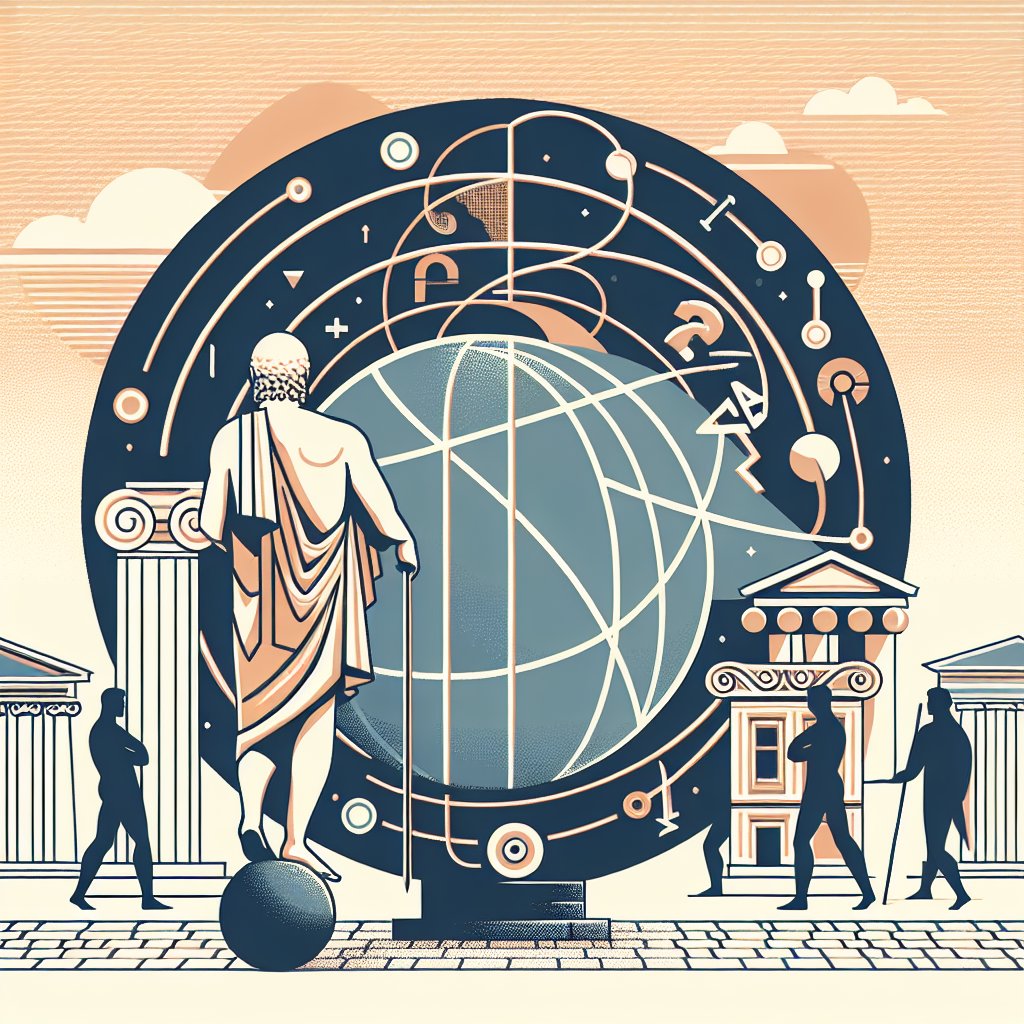The Gadfly Who Changed Everything: How Socrates Turned Street Corner Conversations Into the Foundation of Western Thought

The Gadfly Who Changed Everything: How Socrates Turned Street Corner Conversations Into the Foundation of Western Thought
In an age of social media echo chambers and polarized discourse, the figure of Socrates emerges as surprisingly relevant. This stonemason’s son, who wandered the streets of Athens engaging strangers in dialogue, became the architect of critical thinking. His method of relentless questioning transformed casual conversations into a revolutionary inquiry framework, shaping the way we approach truth, knowledge, and self-examination today. From his early influences in war-torn Athens to his evolution into a philosophical martyr, we trace Socrates’s journey and the development of his famous method of systematic doubt.
Socrates: A Life of Inquiry
Socrates was born in Athens around 470 BCE, a city on the brink of political upheaval and cultural flourishing. The effects of the Peloponnesian War left deep scars on Athenian society, influencing young minds like Socrates to seek answers in a world filled with uncertainty. Unlike many of his contemporaries who engaged in rhetoric and sophistry, he avoided writing and the trappings of fame, choosing instead to walk the bustling streets, engaging both the elite and the common citizen. Socrates’s approach to knowledge was shaped by a profound humility; he famously claimed, “I know that I know nothing.” This statement laid the groundwork for his Socratic method—a form of cooperative argumentative dialogue that encourages participants to question their assumptions and examine their beliefs.
The Socratic Method: Transforming Dialogue
The essence of the Socratic method lies in systematic questioning and critical reflection. Socrates would begin by asking seemingly simple questions that gradually led his interlocutors into deeper levels of confusion and uncertainty. This technique exposed the fragility of their convictions and opened a space for genuine inquiry. In today’s context, where discussions often devolve into personal attacks and uncritical acceptance of misinformation, Socratic questioning offers a valuable counterpoint. It emphasizes intellectual humility, encouraging individuals to set aside their certainties and engage in reflective discourse.
For example, in dialogues about justice, Socrates would ask his interlocutors to define the concept. As they attempted to provide definitions, Socrates would unpack the implications, leading to further questions that revealed contradictions or gaps in their understanding. This process is not merely academic; it’s an essential tool for navigating complex social issues that require nuanced thinking and the willingness to reevaluate one’s beliefs.
Socrates’s Relationships: Mentor and Martyr
The relationships Socrates cultivated with his students, notably Plato, illustrated his profound impact on the philosophical landscape. Plato, who became one of Western philosophy’s most influential figures, was greatly influenced by Socratic thought. Through dialogues like “The Republic,” Plato immortalized Socratic ideas, framing them within broader philosophical concepts. Yet, it was Socrates’s unyielding commitment to his principles that would ultimately lead to his tragic trial and execution.
In 399 BCE, Socrates was charged with corrupting the youth of Athens and impiety. Rather than flee the city or recant his ideas, Socrates chose to accept his punishment as a testament to his beliefs. His trial became a pivotal moment in Western thought, embodying the tension between individual conviction and societal norms. In his defense, he famously argued that an unexamined life is not worth living, a statement that resonates deeply in contemporary society, where introspection is often overshadowed by the pursuit of superficial validation.
The Trial and Death of Socrates
The trial of Socrates exposed the fragility of democratic ideals in a society grappling with internal strife. Facing a jury of his peers, he defended his life’s work, arguing for the importance of questioning and philosophical pursuit. His refusal to conform to societal expectations, even in the face of death, positioned him as a martyr for truth. Socrates was sentenced to drink hemlock, an act he accepted without fear, embodying his teachings about the necessity of living a virtuous life aligned with one’s beliefs.
In his final moments, Socrates engaged in conversation with his friends, discussing the immortality of the soul and the philosopher’s duty to seek truth. His calm demeanor in the face of death serves as an enduring symbol of intellectual bravery, challenging us to confront our own certainties and engage deeply with life’s fundamental questions.
Socratic Wisdom in the Modern World
What makes Socrates particularly fascinating for modern readers is how his approach to wisdom mirrors the intellectual humility we desperately need in our current era of fake news and confident misinformation. In a world where certainty often takes precedence over understanding, Socratic questioning invites us to pause and reflect. His emphasis on examining one’s life and the belief that “virtue is knowledge” holds profound implications for personal authenticity and civic engagement.
Modern applications of the Socratic method can be seen in pedagogical practices that emphasize critical thinking, such as inquiry-based learning models. By encouraging students to ask questions and engage in dialogue, educators instill the same intellectual courage Socrates championed. Furthermore, in discussions of political polarization, the Socratic method serves as a bridge, fostering a culture of dialogue that respects differing viewpoints while simultaneously challenging assumptions.
Conclusion: Socrates’s Enduring Legacy
As we navigate the complexities of contemporary life, the lessons imparted by Socrates remain strikingly relevant. The ‘gadfly’ of Athens, who dared to expose ignorance while claiming to know nothing, left behind a powerful legacy that urges us to engage rigorously with our beliefs. His life teaches us about the importance of intellectual courage, the necessity of dialogue, and the transformative power of questioning.
In a time when certainty reigns supreme and echo chambers abound, Socrates invites us to embrace uncertainty and passionately pursue truth. The road of inquiry he paved 2,400 years ago offers a timeless roadmap, encouraging each of us to become gadflies in our own right—questioning, exploring, and ultimately striving for wisdom in an ever-complex world.